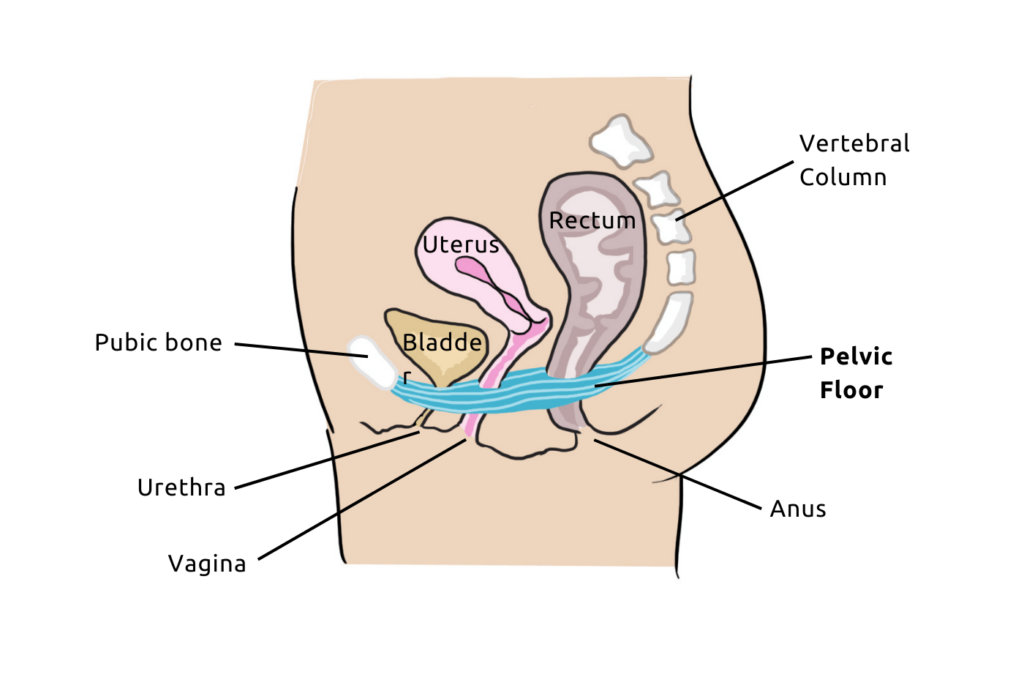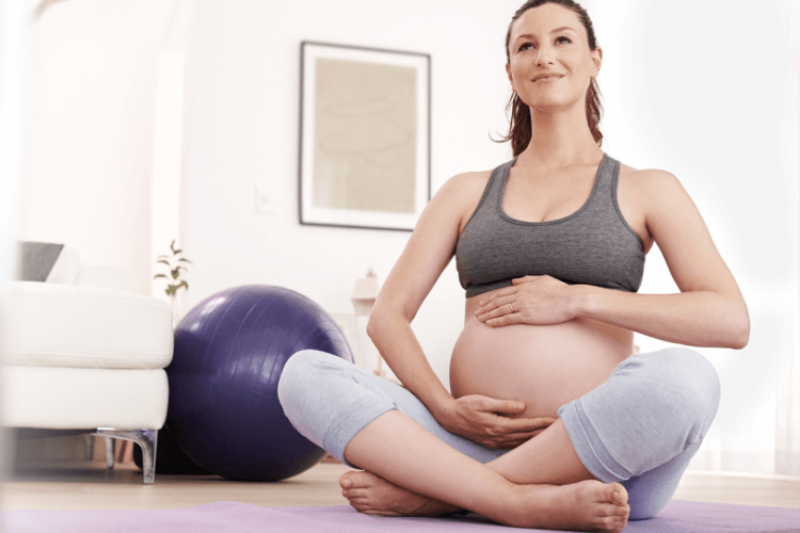
You complete guide to ‘Pelvic Floor massage’
You are pregnant and you have heard about the benefits of ‘pelvic floor massage’. But you don’t know how to do it. Here is a complete guide on the why and the how of ‘pelvic floor massage’.
Why massage your pelvic floor?
It is usually during pregnancy that women hear about their pelvic floor for the first time, also known as the pelvic floor.
This group of muscles extends from the pubis to the coccyx and resembles a small hammock supporting the genital organs. It plays a fundamental role in continence and sexual function.

Getting to know your pelvic floor during pregnancy
The pelvic floor will bear a lot of pressure during your pregnancy. The weight of the baby resting on it for 9 months and the passage of the baby during childbirth are just a few examples of the changes it will have to face.
Learning to massage it allows for a better awareness and understanding of your pelvic floor. Massages also help prepare the entire pelvic floor for childbirth.

Learning to relax your pelvic floor during childbirth
At the time of childbirth, it is important to know how to relax your pelvic floor as the pelvic floor will stretch with the passage of the baby.
During contractions, a defensive reflex of contraction sets in. It will then be necessary to be able to inhibit this reflex in order not to hinder the baby’s progress during childbirth.
The pelvic floor can be compared to an elastic band that will stretch to the maximum when the baby’s head passes through. Therefore, it is preferable to prepare this “elastic band” well so that it can do its job smoothly, relax and stretch as much as possible.
Limiting pelvic floor or perineal trauma
During pregnancy, hormones will act on the tone of the pelvic floor to make it more elastic. Pelvic floor massage also helps to increase elasticity of pelvic tissues and improve the flexibility of pelvic muscles.
By massaging your pelvic floor regularly, your muscles will be less fragile. This will help reduce the risks of episiotomies and perineal tears following childbirth.
Training your breath
pelvic floor massage is a moment of relaxation. During this moment of relaxation for the body and mind, breathing plays a crucial role. Take the time to breathe calmly during the massage.

Facilitates resuming postnatal sexual activity
By regularly practicing pelvic floor massages, you will acquire a better understanding of your body and mastery of this area. You will feel more confident and serene during sexual intercourse.

This can also be useful if, after childbirth, you have a scar from a tear or an episiotomy. You can practice a massage to soften it and prevent pain.
6 weeks after giving birth, you can start your sessions of pelvic floor training to tone and strengthen your pelvic floor.

Free Pelvic floor guide
Find out how to strengthen your pelvic floor to prevent bladder weakness and improve intimate pleasure! 💥
How to perform a pelvic floor massage?
Once you have located the pelvic floor, you will now need to massage it to relax. So between theory and practice, here is everything you need to know.
Preparing your body for massage
Before starting the massage, empty your bladder and bowels and perform a quick intimate hygiene. Since vaginal mucosa is very sensitive to infections, it is also essential to have impeccable hand hygiene.
Before starting the massage, make sure to wash your hands with soap. Also, remember to trim your nails to avoid injuring yourself.
Massaging the pelvic floor with massage oil
Remember to equip yourself with pelvic floor massage oil to make the massage smoother. We recommend using Weleda massage oil which will also nourish your skin. You can also use neutral oils such as sweet almond oil for example or simply a lubricant.
To start your massage, settle comfortably in a familiar quiet place. Coat your thumb and index finger with oil and take advantage of this time for yourself in complete privacy with your body to fully relax.
Different movements to massage your pelvic floor
Various movements are recommended to massage the pelvic floor externally and internally.
- External Perineal Massage: The external perineal massage, performed between the vagina and the anus, involves a series of gentle movements.
- Internal Perineal Massage: The internal perineal massage is performed by inserting the thumb into the vagina. This allows for massaging the inside of the vaginal wall through circular movements.
Here is a video on how to perform a Pelvic Floor massage
When to start pelvic floor massage?
Health professionals recommend starting pelvic floor massage from the 8th month of pregnancy, from the 35th week of pregnancy.
It is not necessary to start it earlier. Of course, you can still start massaging earlier, but it will not affect the elasticity of your pelvic floor. So, everything in its own time!
Attention, in some particular cases, pelvic floor massage may be contraindicated such as in cases of vaginal infection or frequent and/or painful contractions. Do not hesitate to seek advice from your gynecologist or midwife.

Duration and frequency of pelvic floor massage
Pelvic floor massage can be done every day. Generally, it lasts less than ten minutes, between 3 and 5 minutes.
We recommend starting pelvic floor massages alone but afterwards, you can ask your partner to take over and perform this massage.
Now that you know everything about pelvic floor massage, you know what you need to do to have a well-prepared pelvic floor on the day of your delivery. Whether it’s to have a better understanding of your pelvic floor, prepare all your muscles for childbirth, or avoid resorting to an episiotomy, all reasons are good to practice pelvic floor massage! We just have to wish you a beautiful end of pregnancy and above all an unforgettable delivery.


